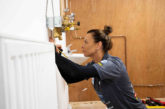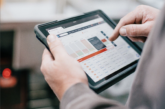
HMRC’s Director General for Customer Services, Karl Khan, answers the questions HMRC is often asked about Self Assessment.
2020 has been a difficult year for many of us and with so much to think about it’s easier than ever to forget about the routine things. But forgetting about your tax return could cause unneeded stress and worry at a time when we could all do without it.
Particularly given the unusual situation we’ve all found ourselves in, you may find that there are new challenges to overcome as you gather everything you need to complete your Self Assessment. You may have been working from different locations, for example, to adhere to social distancing guidelines. Give yourself all the time you need to collect together and check your documents. Remember, this isn’t just about telling HMRC your income and what you owe in tax, it’s also your opportunity to take stock of your business-related expenses and document any tax exemptions.
The following guide will help you decide if you need to complete a Self Assessment tax return for 2019-20, what you need to tell HMRC about and what you can include for exemption, and how you can manage your payments if you’re concerned about your tax bill this year.
I’m not sure if I need to complete a tax return – how will I know if I do?
This depends on your circumstances. You must complete Self Assessment if you fit into any of the following categories:
- you’ve earned more than £2,500 from renting out property
- you’ve received, or your partner has received, Child Benefit and either of you had an annual income of more than £50,000
- you’ve received more than £2,500 in other untaxed income, for example from tips or commission
- you are a self-employed sole trader whose annual turnover is over £1,000
- you are an employee claiming expenses in excess of £2,500
- you have an annual income of over £100,000
- you have earned income from abroad that you need to pay tax on
If you’re still not sure whether you should complete Self Assessment you can check at www.gov.uk/check-if-you-need-tax-return
I need to complete one. What do I do now – I’ve never done this before?
If this is your first tax return you will need to register at GOV.UK. It’s a straightforward process, but if it is your first time, it’s very important to register sooner rather than later, as it can take up to 10 working days (21 if abroad) for the registration to arrive in the post.
Visit www.gov.uk/log-in-file-self-assessment-tax-return. Have some identification and key information to hand, such as your passport, National Insurance number and bank details. Once you are registered you will get your Unique Taxpayer Reference (UTR) which will make any future tax returns far easier. Anyone who registered before already has their UTR and they use this for all their subsequent declarations.
When do I need to submit my tax return by?
The final deadline for 2019-20 tax returns is 31 January 2021 for returns submitted online and 31 October 2020 for returns submitted on paper, but we urge people not to put it off and to submit it as soon as possible. You can complete Self Assessment as soon as you have all the information you need.
What does HMRC need to know?
We need to know what your total income was and about any employment benefits you received in the relevant tax year.
If you receive an income as an employee in addition to being self-employed, we need to know about this as well as any foreign income or pension income you might receive.
Employment benefits may be from your employer or your own business and could be a company car, interest-free loans (such as those given to employees to pay for train season tickets) and/or health insurance, to give just a few examples. These will be declared in form P11D.
You need to declare any earnings from property if you are a buy-to-let investor, but don’t forget that certain expenses and allowances can be applied to that income to reduce your tax bill, such as buildings and contents insurance.
Any significant gains from the sale of stocks, shares, property or any part of your business need to be declared on your Self Assessment Return.
It’s important to be aware that the process for Capital Gains Tax on UK residential property sold since 6 April 2020 has changed: it must now be declared and paid within 30 days of completion. This only applies where the property in question is not the seller’s main home. For more information on how to declare this, visit www.gov.uk/capital-gains-tax/report-and-pay-capital-gains-tax
What about allowances and expenses for tax relief?
Taking the time to prepare properly for your tax return also allows you to check that you are claiming all your correct entitlements for tax relief.
HMRC needs to know about your work expenses. These are defined as either “travelling to your job” or “other expenses you had to pay in doing your job – and only whilst doing your job”. Examples may include car mileage and the cost of hotel rooms for business trips. You can also count business expenses, such as the cost of printer ink and business stationery.
If you are self-employed and have bought work equipment such as a computer, printer or phone you can’t necessarily claim these as expenses. But you can claim tax relief on them through the annual investment allowance (AIA) as part of your tax return. The AIA amount has temporarily increased to £1 million between 1 January 2019 and 31 December 2020. For the most part, AIA covers the cost of purchases you need to carry out your business.
Charitable donations are taken into account and deducted from your tax liability. It’s possible to make a donation now and carry it back into the previous year. Gift aid donations give you as much as 60 per cent tax relief.
You must give details of your student loan repayments in the relevant section of your tax return. You must declare it, but there’s no tax relief on loan payments.
I’ve had a very difficult year and I’m worried about my tax bill. Is there anything I can do?
This has been a very hard year for a lot of people, so sadly, you won’t be alone. HMRC is aware of this.
Some people who find themselves in the position of worrying about paying their tax bill may, unfortunately, be reluctant to call HMRC to deal with this. This is why we’ve made it easier for customers to make their own arrangements for managing how they pay their tax.
Self-serve Time to Pay (SSTtP), is our online payment plan service. Self Assessment customers can apply online for additional support, allowing them to spread the cost of their tax bill into monthly payments without the need to call us.
SStP could always be used for tax liabilities up to £10,000, but as of the beginning of October the maximum amount has been increased to £30,000. The aim is to support Self Assessment customers who may be experiencing financial issues due to the coronavirus pandemic.
When you complete your tax return for the 2019-20 tax year, you may have the option of using the online self-serve Time to Pay facility through GOV.UK to set up a direct debit and pay any tax that is owed in monthly instalments.
If you wish to set up your own monthly payment plan, you must meet the following requirements:
- no outstanding tax returns
- no other tax debts
- no other HMRC payment plans set up.
The debt needs to be between £32 minimum and £30,000 maximum and the payment plan must be set up no later than 60 days after the due date of a debt.
Customers using self-serve Time to Pay will be required to pay any interest on the tax owed. Interest will be applied to any outstanding balance from 1 February 2021.
Any other advice?
Give yourself plenty of time. Ok it’s not fun or exciting, but don’t put it off to the last minute. Rushing to get your information to us as the clock is ticking makes it more likely you will make a mistake or forget to include some of your allowances.
Plan when you’ll complete your return well in advance. Get all your documents together, check them first for accuracy or missing information and set aside a quiet time to enter the details online. The system will calculate your tax automatically as you fill in the sections, but don’t worry if you have a lot of information to work through, you can save your progress in stages and come back to it later. You don’t need to complete everything in one sitting.
If you are worried about any aspect of your Self Assessment tax return and would like to get more help and advice, you can find plenty of useful support at www.gov.uk/self-assessment-tax-returns/get-help













